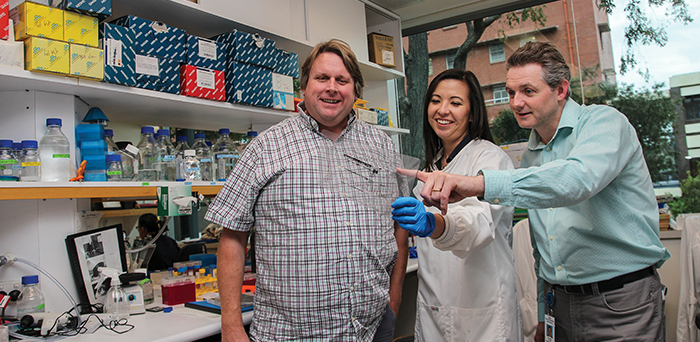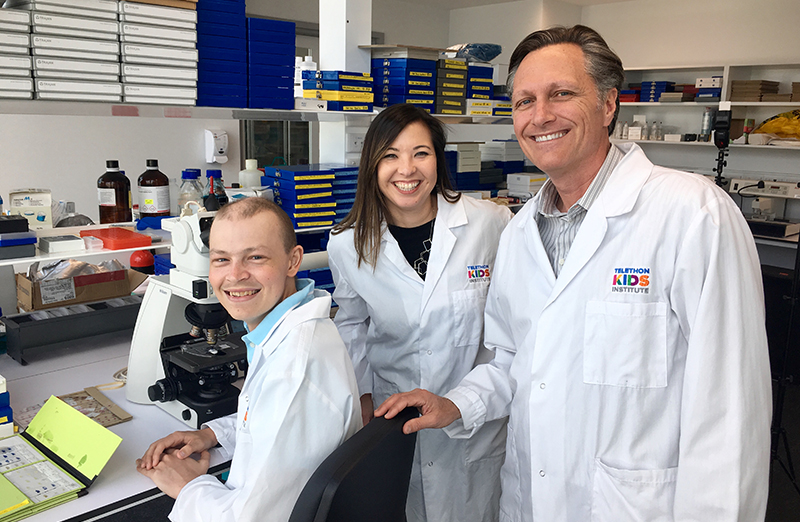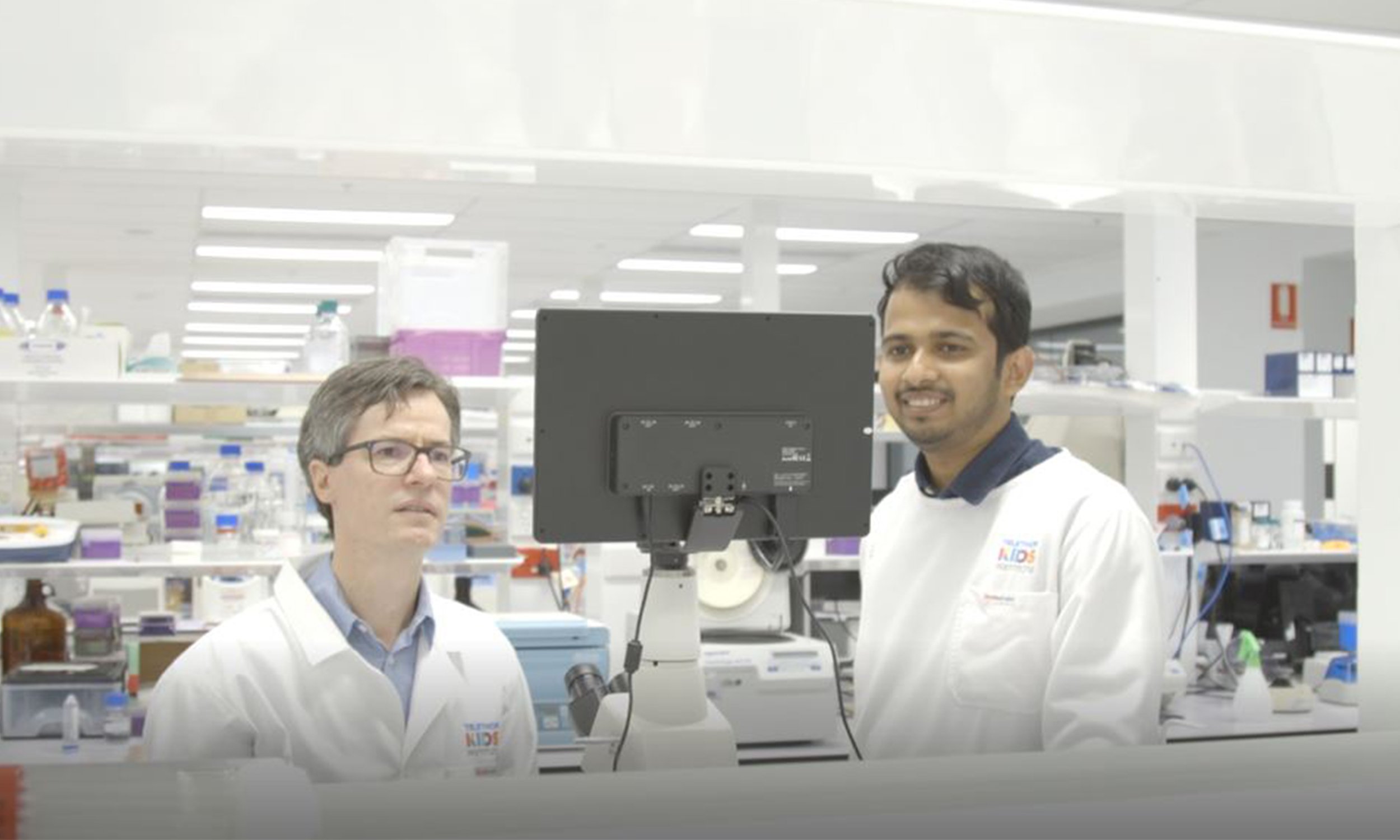Search
Research
Pulmonary microRNA profiles identify involvement of Creb1 and Sec14l3 in bronchial epithelial changes in allergic asthmaIn this study, we aimed to use microRNAs-which are critical regulators of signaling cascades-to identify so far uncharacterized asthma pathogenesis pathways
Research
Neuropsychological Aspects of Prevention and Intervention for Fetal Alcohol Spectrum Disorders in AustraliaBarriers in addressing FASD in Australia include a drinking culture and large populations living in regional or remote communities with high risk populations.
Research
Graphomotor skills in children with prenatal alcohol exposure and fetal alcohol spectrum disorder: A population-based study in remote AustraliaFew studies have examined graphomotor skills in children with prenatal alcohol exposure (PAE) or fetal alcohol spectrum disorder (FASD)
Research
Rethinking food and nutrition science: Efective governance for food and nutrition science in AustraliaThis paper discusses the new nutrition science paradigm, priorities and challenges for the next decade in Australia.
Research
Dynamic versus static biomarkers in cancer immune checkpoint blockade: unravelling complexityThere has been a coordinated effort from academic institutions and the PI to identify biomarkers that can predict immune checkpoint blockade response in cancer.
Research
Prevalence and risk factors for parent-reported recurrent otitis media during early childhoodThe prevalence of parent-reported rOM was 26.8% (611/2280) and 5.5% (125/2280) for severe rOM in the Study.

News & Events
The Kids cancer researcher named a Superstar of STEMThe Kids Research Institute Australia brain cancer researcher, Dr Jessica Buck will today join the ranks of a select group of brilliant female scientists.

News & Events
How to win friends and influence people: Cancer researchers talk the talk for big resultsIn the field of cancer research, lobbying efforts by the The Kids Cancer Centre have contributed to major initiatives including Australia’s first personalised medicine program for children with high-risk cancer, and a mission to boost survival rates in brain cancer patients.
Research
Mitochondrial mistranslation modulated by metabolic stress causes cardiovascular disease and reduced lifespanChanges in the rate and fidelity of mitochondrial protein synthesis impact the metabolic and physiological roles of mitochondria. Here we explored how environmental stress in the form of a high-fat diet modulates mitochondrial translation and affects lifespan in mutant mice with error-prone or hyper-accurate mitochondrial ribosomes. Intriguingly, although both mutations are metabolically beneficial in reducing body weight, decreasing circulating insulin and increasing glucose tolerance during a high-fat diet, they manifest divergent (either deleterious or beneficial) outcomes in a tissue-specific manner.
Research
The Impact of Bullying Victimization in Early Adolescence on Subsequent Psychosocial and Academic Outcomes across the Adolescent Period: A Systematic ReviewBullying is a widespread global issue, with serious consequences for victimized individuals. The current systematic review is the first to explore the consequences of bullying in early adolescence on psychological and academic functioning across the adolescent period. Five databases were examined, yielding 28 relevant studies.

News & Events
Three-continent clinical trial aims to improve survival for aggressive kids’ brain cancerThe Kids Research Institute Australia and Perth Children’s Hospital will lead an international clinical trial of a novel drug combination they hope will increase cure rates for one of the most aggressive forms of childhood brain cancer.
Research
Intrauterine growth restriction predisposes to airway inflammation without disruption of epithelial integrity in postnatal male miceEvidence from animal models demonstrate that intrauterine growth restriction (IUGR) alters airway structure and function which may affect susceptibility to disease. Airway inflammation and dysregulated epithelial barrier properties are features of asthma which have not been examined in the context of IUGR.

News & Events
Major grant awarded to tackle antibiotic resistanceVital research aiming to improve the treatment of potentially deadly Group A Streptococcus (Strep A) has been awarded $820,000 in the latest round of National Health and Medicine Research Council’s Ideas Grants.
Research
A bayesian spatio-temporal analysis of malaria in the Greater Accra region of Ghana from 2015 to 2019The Greater Accra Region is the smallest of the 16 administrative regions in Ghana. It is highly populated and characterized by tropical climatic conditions. Although efforts towards malaria control in Ghana have had positive impacts, malaria remains in the top five diseases reported at healthcare facilities within the Greater Accra Region. To further accelerate progress, analysis of regionally generated data is needed to inform control and management measures at this level. This study aimed to examine the climatic drivers of malaria transmission in the Greater Accra Region and identify inter-district variation in malaria burden.
Research
Can a social media intervention improve online communication about suicide? A feasibility study examining the acceptability and potential impact of the #chatsafe campaignThere is a need for effective and youth-friendly approaches to suicide prevention, and social media presents a unique opportunity to reach young people. Although there is some evidence to support the delivery of population-wide suicide prevention campaigns, little is known about their capacity to change behaviour, particularly among young people and in the context of social media. Even less is known about the safety and feasibility of using social media for the purpose of suicide prevention.
Research
Intrauterine Growth Restriction Promotes Postnatal Airway Hyperresponsiveness Independent of Allergic DiseaseIntrauterine growth restriction (IUGR) is associated with asthma. Murine models of IUGR have altered airway responsiveness in the absence of any inflammatory exposure. Given that a primary feature of asthma is airway inflammation, IUGR-affected individuals may develop more substantial respiratory impairment if subsequently exposed to an allergen. This study used a maternal hypoxia-induced mouse model of IUGR to determine the combined effects of IUGR and allergy on airway responsiveness.
Research
The EU Child Cohort Network’s core data: establishing a set of findable, accessible, interoperable and re-usable (FAIR) variablesThe Horizon2020 LifeCycle Project is a cross-cohort collaboration which brings together data from multiple birth cohorts from across Europe and Australia to facilitate studies on the influence of early-life exposures on later health outcomes. A major product of this collaboration has been the establishment of a FAIR (findable, accessible, interoperable and reusable) data resource known as the EU Child Cohort Network. Here we focus on the EU Child Cohort Network's core variables.
Research
Research using population-based administration data integrated with longitudinal data in child protection settings: A systematic reviewOver the past decade there has been a marked growth in the use of linked population administrative data for child protection research. This is the first systematic review of studies to report on research design and statistical methods used where population-based administrative data is integrated with longitudinal data in child protection settings.
Research
Unlocking immune-mediated disease mechanisms with transcriptomicsThe transcriptome represents the entire set of RNA transcripts expressed in a cell, reflecting both the underlying genetic and epigenetic landscape and environmental influences, providing a comprehensive view of functional cellular states at any given time. Recent technological advances now enable the study of the transcriptome at the resolution of individual cells, providing exciting opportunities to characterise cellular and molecular events that underpin immune-medicated diseases.
